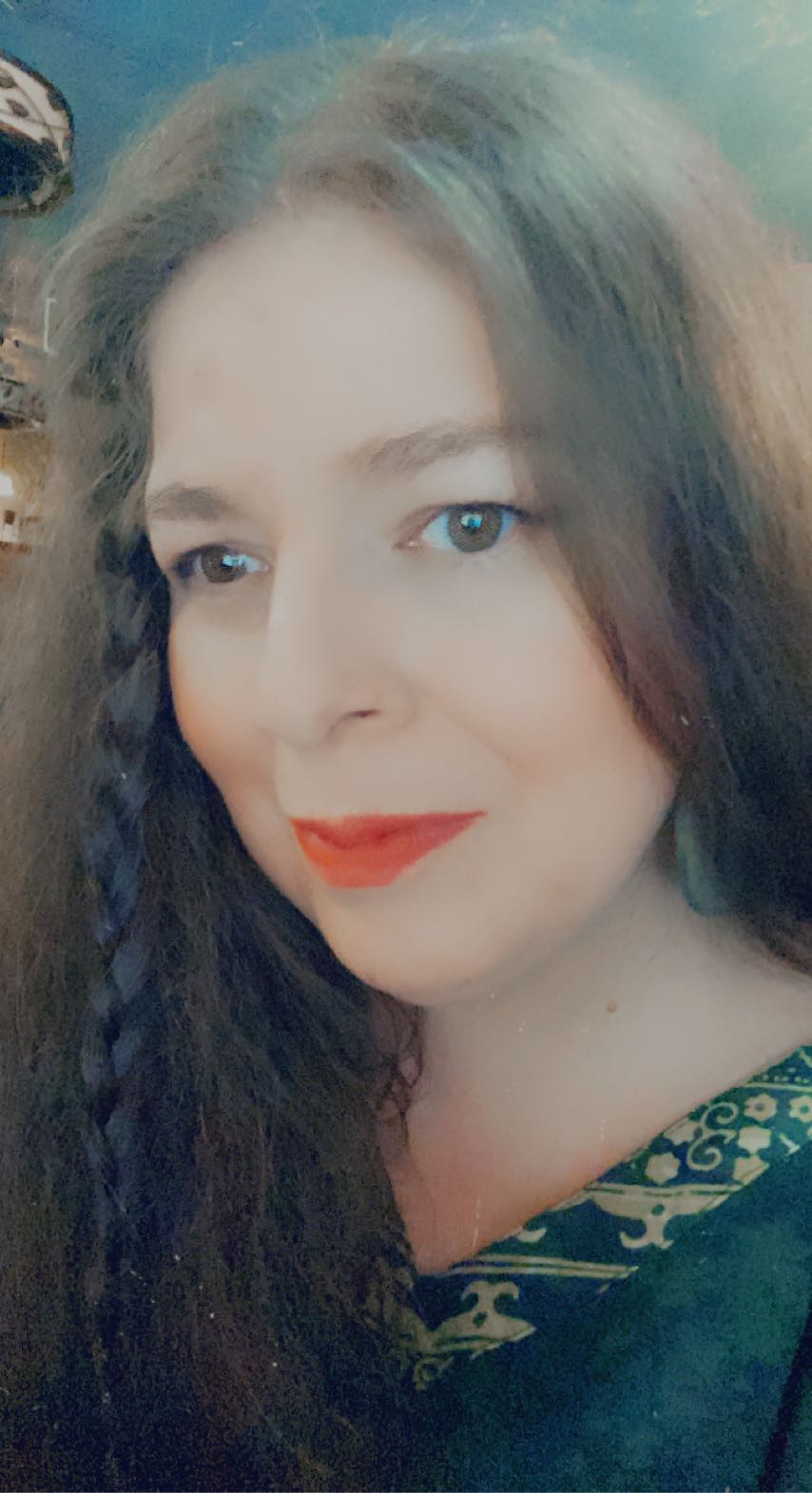
 Poet/Writer/Artist/Editor/Adaptive Fashion Influencer
Poet/Writer/Artist/Editor/Adaptive Fashion Influencer*Official Website* To request a book review, to order copies of Marrow (see below), or to request proofreading or editorial services, email thesonginyourhead@gmail.com.
Sabne Raznik is a poet, a former community theatre actress, an award-winning artist, and an adaptive fashion influencer with three full-length poetry collections - Following Hope, Linger to Look, and Rabbit Hole. She also released a collection of artworks titled Renaissance: Visual Art 2005 - 2019. Her e-chapbook - Dreaming of Bono - is available from VoiceLux (2022). In 2023, a bilingual selected poems was released, Fingers: Selected Poems/Dedos: Poemas Seleccionados. She founded and co-edits AvantAppal(achia) ezine. Raznik believes herself to be a supranational poet, in that she feels the arts transcend manmade boundaries. In view of that, her effort as part of the Appalachian Renaissance is to break stereotypes and showcase Appalachian poetry as a living part of the world-wide literary scene, as well as to encourage the underrepresented but thriving Appalachian avant-garde in the global context.
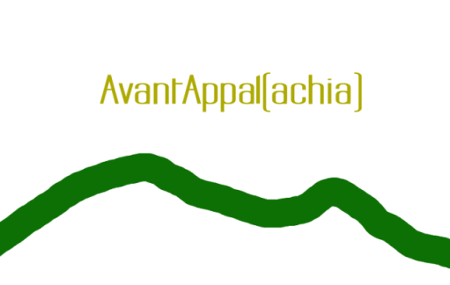
Appalachia's premiere ezine for experimental, avant-garde poetry, short stories, and art. Dave Sykes and Sabne Raznik accept work from across the globe.
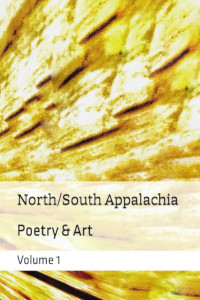
A collection of poetry from the North/South Appalachia Blog
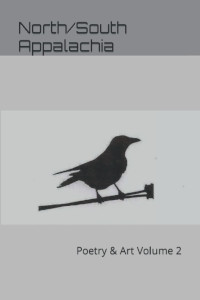
A collection of poetry from the North/South Appalachia Blog
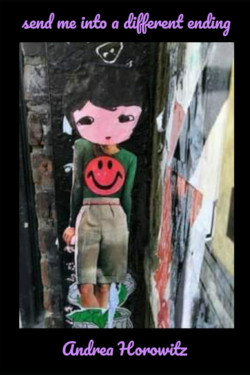
A collection of poetry by Andrea Horowitz
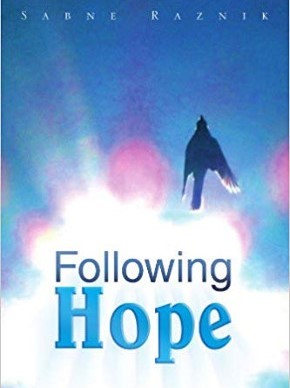
Sabne Raznik's debut and most popular poetry collection. It features sparkling imagery in the language along with black and white photographs that complement the poems.
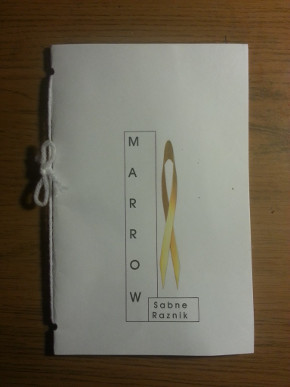
A handmade microchapbook of poems about the experience of childhood cancer, based on the true life story of Sabne Raznik's late nephew. Some names have been changed.To order, use the email address above. All proceeds except shipping will be donated to St. Jude Children's Research Hospital.
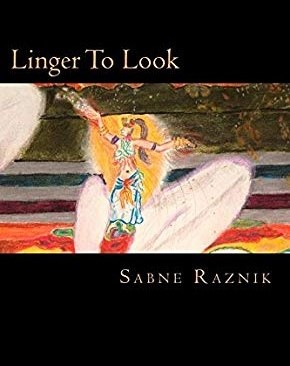
A collection of poems inspired by music, world cultures and languages, history - particularly Biblical history - and the Sumerians. Colour photographs add an evocative touch.
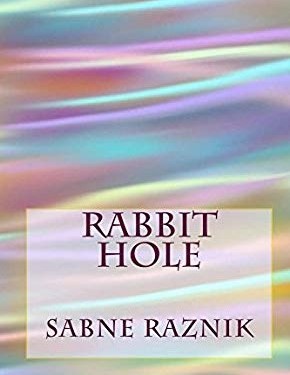
This volume is a collection of found poems (sources listed) which explore the deconstruction of language and the tendency toward loss of meaning in modern discourse. It includes colour representations of some of Sabne Raznik's abstract digital art.
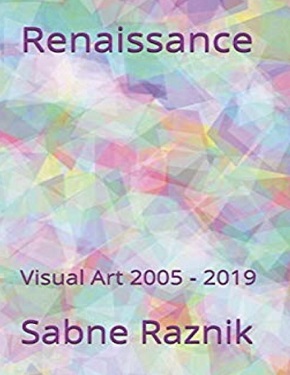
A full colour book of Sabne Raznik's visual art pieces from the years 2005 - 2019.
This e-chapbook from VoiceLux Press features unauthorised poems about Sabne Raznik's inner child work around her fandom of U2 and Bono in particular.
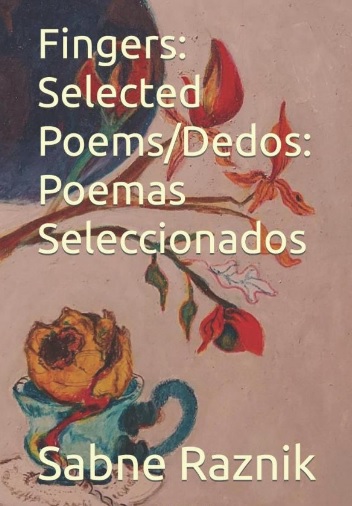
A selection of 4 poems with Spanish translations by María Del Castillo Sucerquia with black and white photographs.
A collection of poems written as if in the voice of some of the "fallers" on 9/11/2001, not from a political view, but as a way to process the collective trauma of that day and as a tribute to those lives lost. This book is free. Simply click the bold title through to the downloadable manuscript.
Faller
These fictional poems from Raznik come with a ‘trigger warning’ 20 years after the 9/11 Twin Towers Tragedy in New York. The Photo of “The Falling Man” is referenced along with those of the others who died. Raznik says ‘I borrowed a word from the sport of steeplechasing, one that I feel is more accurate, fully inclusive, and carries no stigma: Fallers.’
Her hyper-delicate, hyper-sensitized material is red flagged thus: ‘Nor is it meant to cause pain to anyone who lost loved ones that day. Nor is it meant to trigger anyone who battles depression and suicidal ideation’ […] ‘this book is a personal psychological purging.’
Impossible to not engage in some give-away of content within Faller by sampling lines at random. There is anonymity held to, in that those who are among the Faller(s) and falling 'are' in flights of time, speed, rapidity and fleeting reality which makes this a fast-forward plunge with the words, it cannot but be: language falling into or onto where?
This depends on your own personal reading as to what place, space or time you arrive 'within' reaching the last line. Here are clusters of word-scape that fell out as this review aspect-wheeled through the lines of Sabne Raznik in Faller.
The urgent poems are stark as in:
‘I remember reading in school about
The Triangle Shirtwaist Factory Fire,
How some jumped to their death
Rather than burn since there was
No way out.’
‘When I land, they’ll be precious little left
More than an imprint in the sidewalk.
Hope I don’t hit anyone below…’
‘Like we were standing inside the sun.
So much paper around me, like snow.
I am snow now.’
‘Do you remember, little brother, how we use to
Drop water balloons off the fire escape?
Count how long they took to fall?
How we tried to film impact and slow down the tape?
Our science projects?
It’s like that.’
Raznik has also released a collection of artworks Renaissance: Visual Art 2005 - 2019. She founded and co-edits AvantAppal(achia) ezine and believes herself to be a supranational poet, in that she feels the arts transcend manmade boundaries.
Review of Sabne Raznik FALLER. © Kevin Kiely., Poet, Critic, Author; PhD (UCD) in the Patronage of Poetry at the Edward Woodberry Poetry Room, Harvard University; W. J. Fulbright Scholar in Poetry, Washington (DC); M. Phil., in Poetry, Trinity College (Dublin); Hon. Fellow in Writing., University of Iowa; Patrick Kavanagh Fellowship Award in Poetry; Bisto Award Winner. Recent Publications include: ‘Stratford-upon-Shakespeare and other Lies’ AND 'The Principles of Poetry DI + ID = Ѱ Psi' Books available on AMAZON.
Faller is another profound collection by Sabne Raznik. intense, emotional and surreal. "The world is beautiful/At velocity." is only the first line out of all these poems that caught my eye. it makes me stumble. the beauty of this image at the emotional terror that proceeds. moving back and forth from mundane tasks and thinking of children, to the thoughts and questions of falling. it touts your mind. it pulls you in many directions. and then the beautiful love sadness of:
I was afraid to jump alone.
The jacket of my waiter’s uniform felt
Claustrophobic
So I threw it out first.
Then a woman from Table 3
Took my hand and we jumped together
Wordlessly.
so i threw it out first. that line echos in my head. the way the jacket becomes a bird. an image of acceptance, before the calm. - john compton, my husband holds my hand because i may drift away & be lost forever in the vortex of a crowded store
In Faller, a collection of poems, Sabne Raznik makes you really feel for the people who fell from the Twin Towers on 9/11. These poems, written in the voices of those who fell, are heart-wrenching. They make you think about what you would do if faced with certain death. If you were judgemental of the people who fell, you won't be after reading these evocative poems. The voices in these poems are so realistic, it's like it actually happened to the author. She puts you in these people's shoes. I've complained about things like a fax machine on the job before, so lines like: "The coworker who complains/about the copier was/standing on her desk/ because the floor burned/through her shoes" really strike a chord in me, make me realize how miniscule and petty my office complaints are in the light of a building burning so fiercely that you have to escape, even if it means certain death. When you read these poems, there is no way you can possibly think of these fallers as suicidal. These poems have eye-opening lines: "The world is beautiful at velocity. Just colour./Like an abstract painting." You really feel the tragic quality of the situation when you experience these voices: "I quit yesterday./I'm just here to get my things." You will come away with a new perspective on having to face death after reading these sad but beautiful, evocative poems. - Lori Lasseter Hamilton, limo casketFingers: Selected Poems/Dedos: Poemas Seleccionados
Sabne Raznik’s latest collection of poetry Fingers, Selected Poems / Dedos, Poemas Seleccionados contains four powerfully emotive poems (“The Bearded Prophet,” “Poetry,” “Through Our Skin,” and “Fingers”). The English original of each poem is followed by an illustration and then by a Spanish translation by María Del Castillo Sucerquia. It concludes with a photo of the author followed by a one-paragraph biography in English and then its Spanish translation. The four poems are extremely different thematically and make use of different poetic languages. The common denominator between them is an underlying existential anxiety resulting from the inability of human beings collectively to understand each other and set aside greed and self-interest, and individually, in the case of the poet, to find consummation in love, and to discover the language in words and images to capture and communicate the essence of her experience. The poet notes in “Bearded Prophet,” she finds herself in “the era of pain -stampeding pain,” one which paradoxically leads her to identify with the “dumb hillbilly,” the bearded prophet who wears a sign that says “The End of the World Is Near.” Impending doom is suggested by images of the destruction of the environment, the open gashes of Appalachian strip mines, trees stripped bear of life to a height of eight feet by herbicide, and the violent midwestern storms intensified by climate change. “Poetry,” the most abstract of the four poems, prescribes in the form of a series of commands (“arm yourself, “leave the figure,” “Virgin love grow bold” which do not lead to consummation; they prove impotent. “Through the Skin” evokes the locus of creativity, where books, and papers, paint and turpentine are present on a table along with cup and saucer, the place where the written word and the painted image are crafted. The poem leaves the reader with a sense of a purpose shared by the “us” of the poem: “to sketch an idea to live by.” The last poem “Fingers” evokes images of a painful, repeated sexual encounter described as a violation, “like cactus thorns raking down my shapeless lines,” but the violation seems not to result from the violent impulse of the other, rather from the inability of the speaking subject to make good on the promise to the self with the words “Never again, never again.” The four poems are satisfying both as individual compositions and as panels of a multi-media whole. – Yndiana Montes Fogelquist and Jim Fogelquist, Appalachian Latinidad
.Fingers/Dedos is a powerful chapbook with 4 elaborate poems in English, with the same poems being translated into Spanish. The poetry captures strong images and emotions: "You sat cross-legged in the grass/And the earth framed your face." I was pulled into these poems and transformed into a cocoon waiting to be released into something with such fingers that would "Feel the bone crack,/Grind against my teeth/As I scream [...]" and become new in the aftermath. – John Compton, the castration of a minor god and how we liberated what secrets we modified
Dreaming of Bono
A little girl, a young lady, and a mature woman walk into a bar and order a pint of Guinness. Only the mature woman leaves.
Why?
Because "hope has wings" and only the mature woman has the experience enough to manipulate "the sadness in our will : the courage of noble righteous doomed, who defy and defy ... because we must, if only for those who lack the strength to fight". Because, as I told you, "she's lived more than you'll ever read".
The collection is a taste of mental growth in action, weaving dreams, reality and over the top stardom into a father figure only to outgrow him in the most superlative way.
A carry in your pocket lifting of burdens to peruse over and over again. Why? Because "hope" is making a ruckus to get your attention! -- Marica, Artist
Sabne has some beautiful poems and a heart that is open to the process needed to make them. She has the "shine" as Stephen King would say and in a good way. There is an extra spirit level perception involved, a supernatural openness to receiving from Heaven that Sabne carries within herself and a grace that each of her poems relate very well. Sabne's poems are like secrets from an old friend spoken as "heartsongs", they draw you in and keep your attention. -- T. Byron Kelly, Project End of Days and Poems of the Infinite Dream
Renaissance: Visual Art 2005-2019
Renaissance is an emotional collection of work. Sabne Raznik’s pieces present the human experience in a thought-provoking and abstract way through body shapes and delicate hues. A mix of digital and traditional media, Raznik’s work is compelling in a way that makes the viewer’s eyes want to linger - taking all the details in. The traditional drawings of the Salome Series capture movement and exotic femininity with only the use of line and simple shading, while mixed media pieces like Beautiful Tatters find beauty in the mundane or unusual, like a scrap of paper soaked in wine. Raznik’s digital paintings feel like one is looking at a human emotion depicted in soft fields of color. Raznik is well known for her written word, but is proving herself to be quite the visual storyteller as well. This body of work is an excellent addition to any collection.-- Erin Alise Conley, Mixed Media Artist, Host of Weird Appalachia Podcast
Rabbit Hole
I want the reader to imagine a dream, a dream of the sort that is not quite a nightmare where the dreamer wakes in terror but rather a dream where the dreamer is led on from curiosity to curiosity, image to image, and, confused perhaps but no less surprised by the images, wakes with a head scratch and begins the day, thinking about the world as a much stranger place than when the reader laid down to sleep ... [In the poems where the language is more] extreme . . . the deconstruction of language . . . [mirrors] the shattered state of language today and the impossibility to understand discourse of any kind anymore. It is as if language itself is designed to disguise meaning rather than convey it. -- George Fillingham
Linger to Look
The over-arching themes of Linger to Look seem to be desire, belonging, transformation, and loss. Many of the poems are spoken in the voice of a woman who longs to dance and break free from the bonds that tether her to dusty reality. Horse, bird, water, and stone images abound. Musical use of language led me to finally read many of the poems aloud to myself to further experience the poet’s skill with sound. Linger To Look ... is a dance of musical language and metaphysical imagery, swirling in experimentation and shimmering in the jingling of human heart. -- Roberta Shultz, Braver Self
Marrow
A lovely, heartbreaking handmade chapbook ... poems that emerge from a deep place of suffering and anguish. -- Yon Walls, SpicyLetter.net
Raznik is an artist. The picture is so beautifully drawn through words; I was carried away as if I were looking down the hospital hallway watching this unfold. Good writing stirs emotion and emotion is concentrated in these 15 pages. The best things come in small packages. -- JohnLeeReviews.com
Although it may be a difficult read, it is loving, it is touching, it is truth, it tells the story of all who are afflicted with cancer and of those who love and care for someone with this monstrous disease. The author’s heart is in every word. There is no other writing which can reach inside and touch you more deeply. --Renee Robinson
Following Hope
The language is haunting; in fact the entire book reads like a haunted, lyrical, warm, violent, wounded love-poem in which togetherness and a chilly gulf of separation vie with each other, and hurt is inseparable from loving passion. This leads to a situation where warm intimacy and icy distance assess as they embrace. ... This book doesn't really get laid aside; it walks the streets of Dublin with me. -- Brendan Kennelly
Raznik's poems are fantastic. I was ready to go up and set fire to all my attempts. -- Sally Adkins
A collection preoccupied with the visual: glitter, dazzle, kinetic energy. ... There are fine phrases scattered throughout: "Experience is a changeling", "water coloured smiles and gypsy-clad/ habits", "A leather-clad, muted blue star" (Valhalla: blue) "Crowded streets of baked rain" (Une Ville), "the certainty of ships" (Fingers). There's a real commitment and dedication to language in this first collection that promises much for the future. --Kit Fryatt
Raznik’s writing is deep and colorful and reminds me of an expressionist painting or perhaps like a Picasso showing multiple dimensions and perspectives simultaneously of the same topic - each phrase is like a brush stroke of rich pigment. -- Claudia Duffee
I have spent the past several days reading and rereading your wonderful book Following Hope. I especially liked the first poem with the similar name, "Follow Hope." I loved the way you used sentence fragments to tell the whole story. It's a very natural style. Appealing and involving.
In "Valhalla Blue" I especially liked the imagery: "leafed-out mountains like hands," "pen...like a Turkish belly dancer," "sexual as Morocco," "language that is chameleon," "hips ring like bells," "gypsy-clad habits." I did wonder who was Richard Hugo, but that can be your secret. I loved the references to watercolors and stained glass. This poem is so deep I cannot determine if it is a real lover you are writing to, or is it the hope for a lover. Or maybe even the lover is God as in the poet Rumi. I enjoyed greatly the adventure with this poem.
I liked the "Dumb Hillbilly" who laughs with "his cock-eyed smile On backwards." The image of you sleepless came to my mind, of course, and the part about how they tell you, "Don't examine. Don't investigate. Don't question." I can just see the "bearded Prophet" with his "End of the World Is Near" sign. I love that you take stuff from your experience and surroundings to tell this story, i.e., the "Strip-mines...like deserts on top of Green mountains," the "leafed-out red bud tree," your fumbling with the "leaf (you) found on the ground. And studied its veins like a roadmap to the inner soul of the world, praying It would come to more than greed." That phrase just bowled me over!
On "Waiting it Out," I was seduced into wanting to actually spend an evening talking with you about Hindus, avoiding talk about the "nightmarish possible." It is a feeling everyone human must surely share, and you say it so deftly, so sweetly.
"Une Ville" is a wonderful, melodic, rollicking celebration of Europe and bellydance and Africa and "Soupbeans and Cornbread." I loved it. Such a tiny, succinct way to describe a huge subject.
"Fingers" is another amazing poem: "I wonder What are you dreaming of, How is it that I fit in?" Of course, who hasn't wondered this? Again, you caught something, a feeling that is so damned deep and distressing, but that passes like a shadow over the mind of a lover.
I loved "Philly--This elongated smear, coal-black finger print on glass, Tar on my heart" from "Philadelphia." It makes me want to hear your take on all cities. And in "Budding," I loved the entreaty, "Teach me beautiful words." You certainly fill that bill utterly. Your words are beautiful, your thoughts subtle and introspective, your intelligence and experience amazing. Makes me want to ask, how old are you? Where in the world did you come from? Sounds like a tacky question, but I am serious. It would seem you'd have to be an crone to come up with some of the ingredients you put into this enticing soupbeans and cornbread. You simply must stay with this quest. Your poetry will take you far, if that is what you want. I have no doubt of it. It's just a matter of getting it out to the "right" people. Have you ever played around with song lyrics? Have you read or listened to Bob Dylan? I am not suggesting that you do, just that some of these poems might also be songs, like his. - Carlos, carlosrojo on LiveJournal, 2006.
© All rights reserved. Made by Sabne Raznik with by Createx Studio